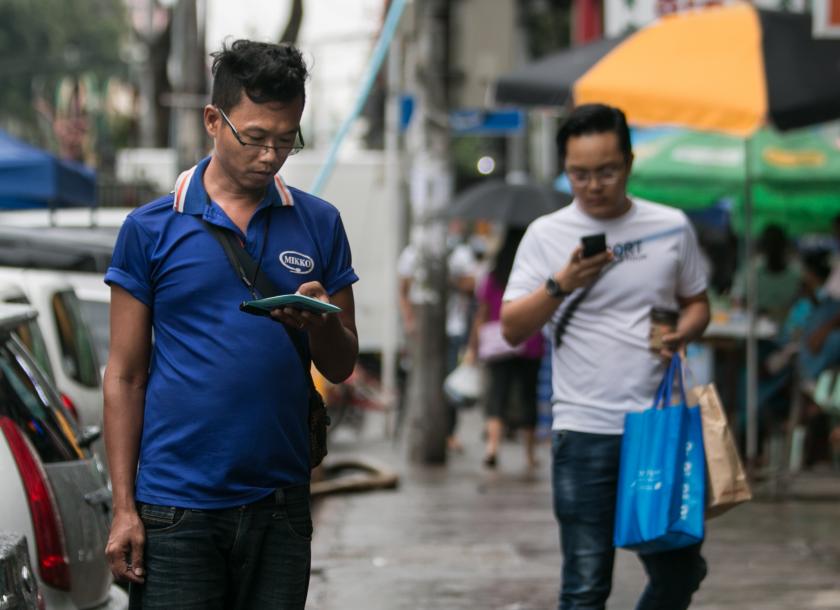Myanmar: Support system needed for growth in retail e-commerce
E-commerce has taken the Southeast Asia retail sector by storm, with Indonesia raking in a total of $5.3 billion in retail sales conducted online last year, according to Statista. Retailers in Thailand drew in $3 billion, while in Singapore, Malaysia and Vietnam total retail sales via e-commerce amounted $2 billion dollars over the same period.
While no data on Myanmar is currently available, the country is expected to have the highest increase in smart phone adoption in the region in the next few years, according to Mondato.
In January 2017, 1 in 4 people in Myanmar use the Internet on a regular basis, according to a new report released by We Are Social. It said Myanmar now has some 17 million Internet users – most of which use Facebook as their main social media – representing 26 per cent of the country’s population.
Based on those statistics, the prospects for retail e-commerce in Myanmar are promising indeed, panelists at Mondato’s annual digital finance and commerce thought leadership forum in Yangon agreed.
Big obstacles
Yet, there are still substantial obstacles preventing retailers from scaling up their businesses via e-commerce.
One of these is the lack of regulations on consumer protection, which deters consumers, especially in the states and regions outside Yangon, from shopping online. For example, there is currently no recourse for consumers who fall victim to false advertising or are hurt by dangerous products. Indeed, The Myanmar Times understands that currently, the Yangon City Development Committee has yet to issue licenses to online start-ups and businesses.

A consumer browses for cosmetics online. Photo: The Myanmar Times
“While there is a lot of potential for e-commerce to take off, the lack of regulation is difficult for retailers in Myanmar. The ministries just don’t understand e-commerce enough to build the necessary ecosystem these companies need to expand,” said Sumit Jasoria, Regional Managing Director for Myanmar, Sri Lanka and Nepal at Rocket Internet, which builds online companies.
The other problem is the lack of payment options. In Myanmar, around 90pc of the population does not have a registered bank account. Meanwhile, bank transfers are not enabled and the use of credit cards is rare.
“Companies need to work with the banks to create a value proposition for customers to have bank accounts. For example, by making coveted products available only online, more customers will be incentivised to open an account and onto digital payment platforms,” said Rianne Roggema, founder and CEO of Irie Digital, a digital marketing start-up in Myanmar.
Breaking the habit
Retailers can do their part for growth by relying less on Facebook, which is not an efficient platform for e-commerce. “While there been a huge increase in users of smart phones and Facebook it’s much harder to make sure your ads and marketing reaches everyone on Facebook. If you really want customers to embrace e-commerce, you have to build an app or website like Grab or shop.com.mm to scale up the business,” said Ms Roggema.
Nico Poma, managing director of Vendito Asia, the largest classifieds website in Myanmar, said: “Websites with proper digital payment infrastructure is almost non-existent. So far, this is a Facebook-first country when it comes to retail e-commerce. But retailers need to break the habit of relying only on Facebook, which has limited marketing and payment functions, if they want to scale.”
Yangon Door2Door, the online food ordering and delivery service, is one successful example of using a separate website as an e-commerce platform to scale the business. “I disagree that payments and transactions should be done only on Facebook. When you have a proper and functioning app or website, people will use it. We should go beyond Facebook as a digital platform to conduct proper e-commerce,” said Shady Ramadan, founder and CEO of Yangon Door2Door.
As a whole, “we will need more investors and incubators as well as support from the government and banks to create the ecosystem needed for e-commerce to take off in Myanmar,” said Mr Jasoria.
Ms Roggema agreed. “While we have seen some good ideas among the local e-commerce start-ups, the ecosystem needs to improve to foster better creativity. Myanmar digital start-ups need better education and support from the ecosystem.”
Source: https://www.mmtimes.com/news/support-system-needed-growth-retail-e-commerce.html


 English
English




